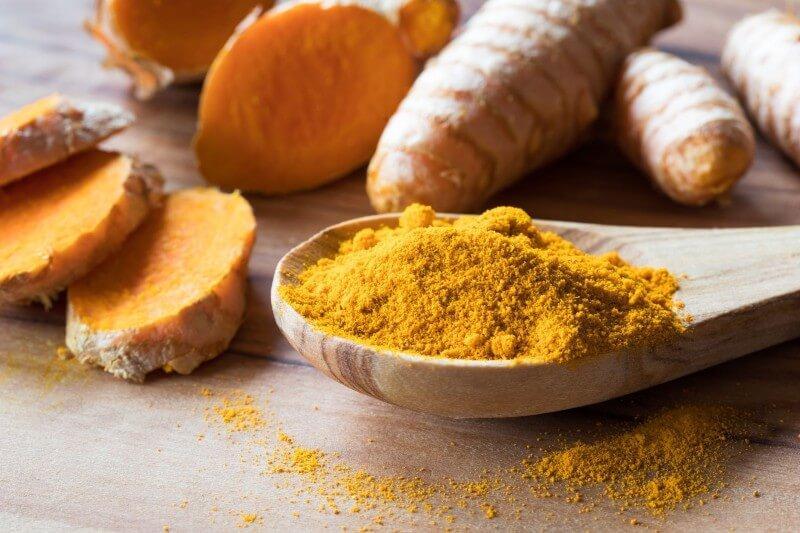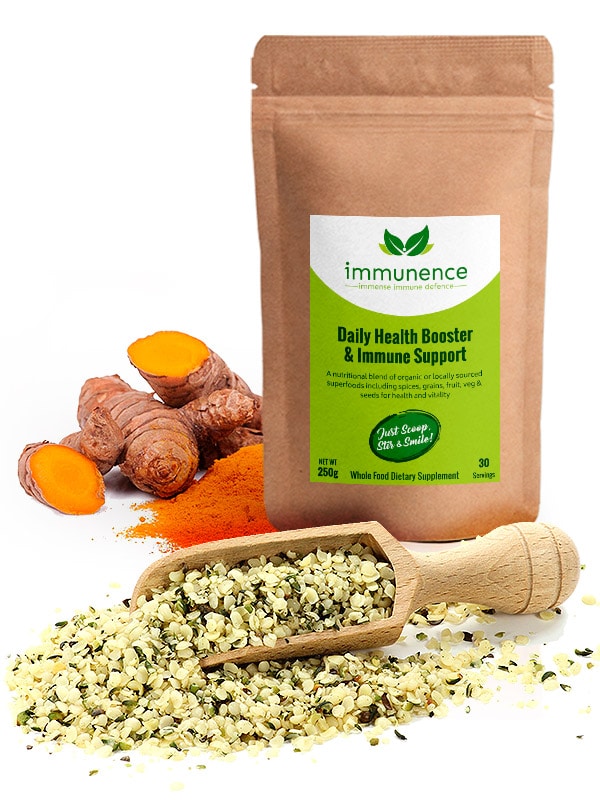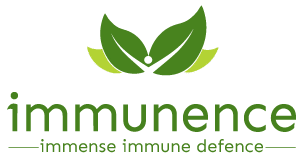Turmeric extract or active component curcumin may have anti-inflammatory effects in people with chronic inflammatory diseases. The effect of turmeric or curcumin on a wide range of inflammatory markers has not been evaluated in a systematic review. We performed a systematic review of randomized controlled trials (RCTs) evaluating the effects of oral turmeric or curcumin on inflammatory markers (CRP, hsCRP, IL-1, IL-6, TNF) in patients with a wide range of chronic inflammatory diseases. Pubmed, EMBASE, Scopus, the Web of Science, and the Cochrane library were evaluated until June 2018. Random effects meta-analyses with inverse variance methods and stratified by turmeric or curcumin were performed. Effects were expressed as mean differences (MD) and their 95% confidence intervals (CI). Risk of bias of RCTs was evaluated with the Cochrane tool. Nineteen RCTs were identified; included patients had rheumatic diseases, advanced chronic kidney disease with hemodialysis, metabolic syndrome, and cardiovascular diseases. Turmeric was the intervention in 5 RCTs (n = 356) and curcumin/curcuminoids in 14 RCTs (n = 988). Follow up times ranged between 4 and 16 weeks. One RCT had high risk of bias. In comparison to controls, turmeric or curcumin did not significantly decrease levels of CRP (MD -2.71 mg/L, 95%CI -5.73 to 0.31, p = 0.08, 5 studies), hsCRP (MD -1.44 mg/L, 95%CI -2.94 to 0.06, p = 0.06, 6 studies), IL-1 beta (MD -4.25 pg/mL, 95%CI -13.32 to 4.82, p = 0.36, 2 studies), IL-6 (MD -0.71 pg/mL, 95%CI -1.68 to 0.25, p = 0.15), and TNF alpha (MD -1.23 pg/mL, 95%CI -3.01 to 0.55, p = 0.18, 7 studies). There were no differences between turmeric and curcumin interventions. High heterogeneity of effects was observed for all markers across studies, except hsCRP. Other inflammatory markers such as IL-1 alpha, TNF beta, IL-17, and IL-22 had scarce data. Turmeric or curcumin did not decrease several inflammatory markers in patients with chronic inflammatory diseases.

Oral turmeric/curcumin effects on inflammatory markers in chronic inflammatory diseases: A systematic review and meta-analysis of randomized controlled trials.

LATEST POSTS
THE SCIENCE
FAQS
HOW DO I TAKE IMMUNENCE FOR BEST RESULTS?
1 good sized tablespoon each morning, preferably in a juice or smoothie, or just with water or orange juice. Immune protection builds up over time.
CAN I TAKE IMMUNENCE IF I HAVE FOOD ALLERGIES?
You can see a full list of ingredients here, so check this list for foods you might be allergic to.
CAN I ENJOY IMMUNENCE IF I AM ALLERGIC TO ONE OF THE INGREDIENTS?
Your content goes here. Edit or remove this text inline or in the module Content settings. You can also style every aspect of this content in the module Design settings and even apply custom CSS to this text in the module Advanced settings.
I GOT MORE OR LESS ‘SERVINGS’ THAN THE NUMBER LISTED ON THE CONTAINER
IMMUNENCE is sold by weight and not volume. Each container lists the approximate number of servings.
 LANGUAGE
LANGUAGE SPANISH
SPANISH
0 Comments